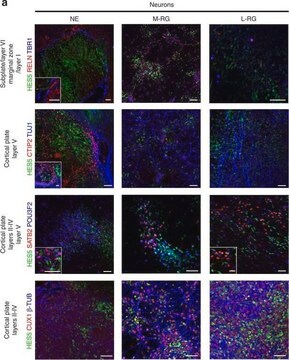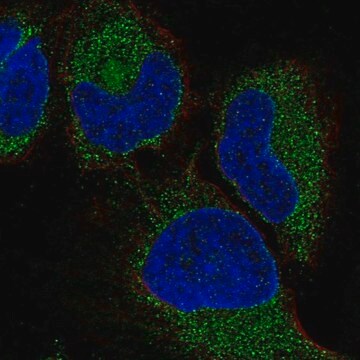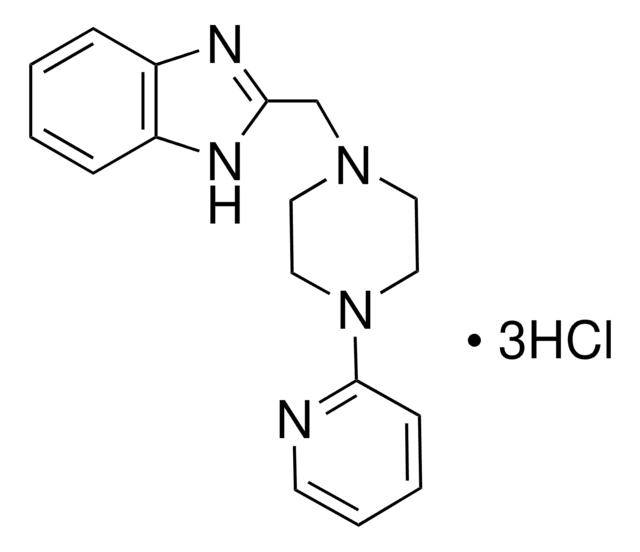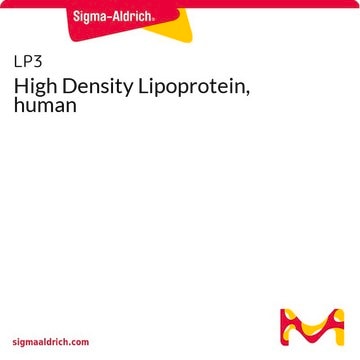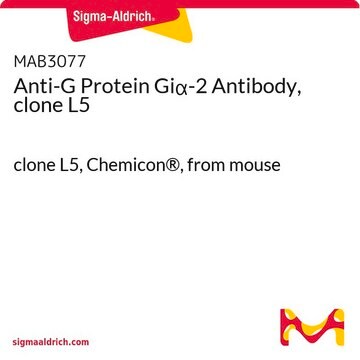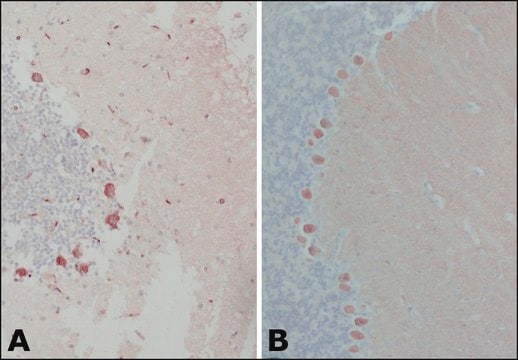AB1581
Anti-Vasoactive Intestinal Peptide Antibody
serum, Chemicon®
Sinónimos:
VIP
About This Item
Productos recomendados
biological source
sheep
Quality Level
antibody form
serum
antibody product type
primary antibodies
clone
polyclonal
species reactivity
guinea pig, rabbit, rat
manufacturer/tradename
Chemicon®
technique(s)
immunohistochemistry: suitable
NCBI accession no.
UniProt accession no.
shipped in
wet ice
target post-translational modification
unmodified
Gene Information
guinea pig ... Vip(100735454)
rat ... Vip(117064)
Specificity
Immunogen
Application
Optimal working dilutions must be determined by end user.
Neuroscience
CNS Control of Metabolism
Hormones & Receptors
Physical form
Storage and Stability
Legal Information
Disclaimer
¿No encuentra el producto adecuado?
Pruebe nuestro Herramienta de selección de productos.
Storage Class
11 - Combustible Solids
wgk_germany
nwg
Certificados de análisis (COA)
Busque Certificados de análisis (COA) introduciendo el número de lote del producto. Los números de lote se encuentran en la etiqueta del producto después de las palabras «Lot» o «Batch»
¿Ya tiene este producto?
Encuentre la documentación para los productos que ha comprado recientemente en la Biblioteca de documentos.
Nuestro equipo de científicos tiene experiencia en todas las áreas de investigación: Ciencias de la vida, Ciencia de los materiales, Síntesis química, Cromatografía, Analítica y muchas otras.
Póngase en contacto con el Servicio técnico
